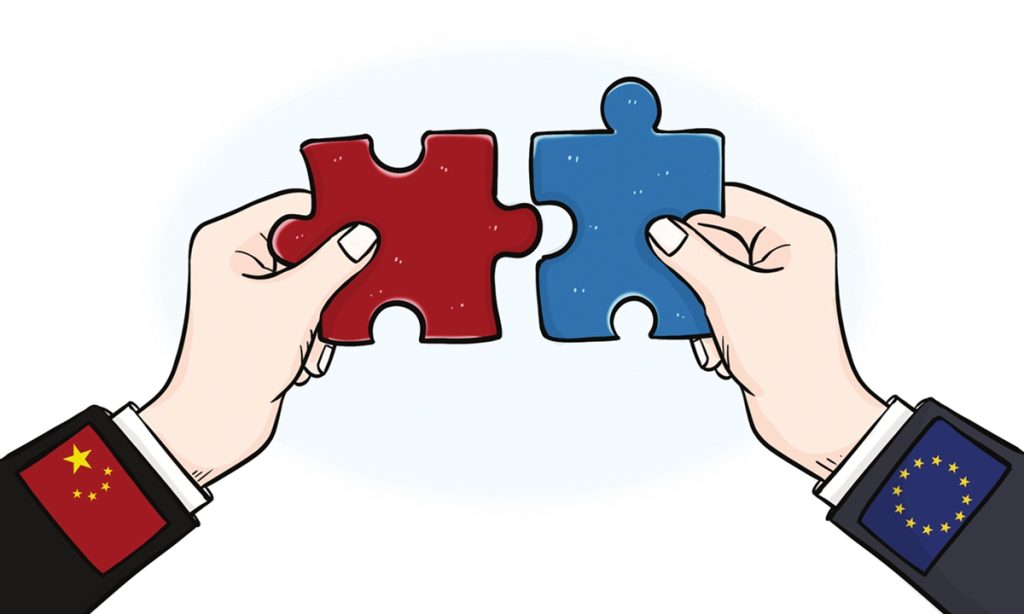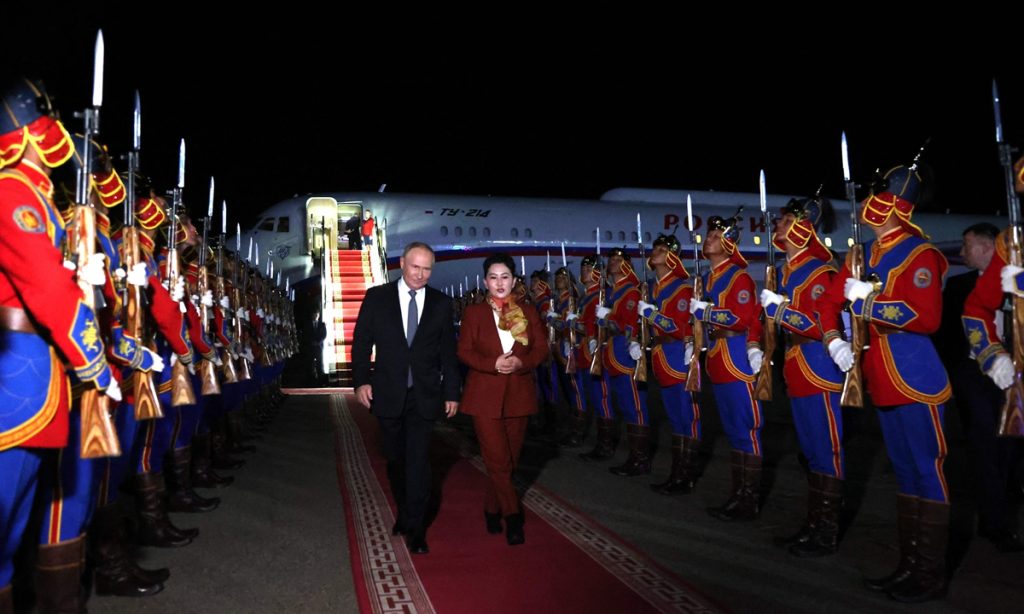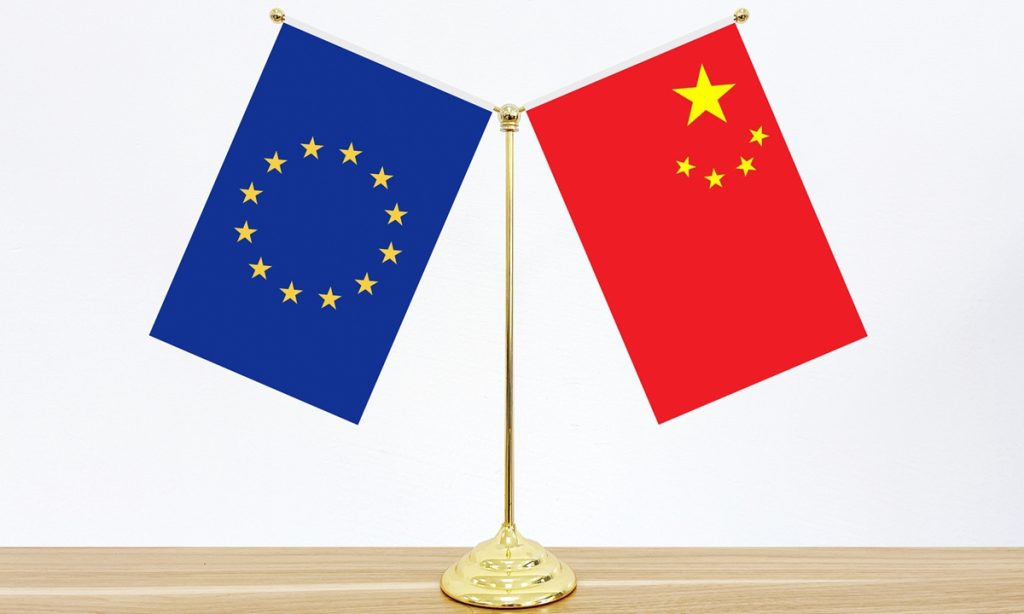Exploring how coastal village achieves ‘zero-net carbon’ goal, sets example for building ‘Beautiful China’

Editor's Note:
Xi Jinping, general secretary of the Communist Party of China (CPC) Central Committee, Chinese president, and chairman of the Central Military Commission, stressed that the environment concerns the well-being of people in all countries. During his many inspections, Xi has always emphasized the importance of ecosystems, spanning from cities to rural areas, and from enterprises to communities.
Under the guidance of President Xi Jinping's Thought on Ecological Civilization, China has been advancing the green transition of its economy over the last decade. Regions across the country are actively promoting the construction of an ecological civilization and advancing Chinese modernization featuring harmony between humanity and nature. These efforts go toward creating a "Beautiful China."
The coming five years will be critical to the building of a "Beautiful China." The Global Times is launching a series of stories to explore the progress of ecological civilization projects inspired by Xi's words, delving into the positive environmental changes occurring now, and offering valuable insights and references for both national and global efforts. Through this prism, we can see how Xi's thoughts on ecological civilization is being put into practice and further inspiring public action.
Recently, the Global Times reporter visited an island village in Zhoushan, East China's Zhejiang Province, delving into the secrets behind the village's success in achieving "net-zero carbon" goal and looking into how the coastal village is implementing Xi's concept that "lucid waters and lush mountains are invaluable assets."
Upon entering the island village of Xinjian in Zhoushan, an archipelago city in East China's Zhejiang Province, the Global Times was welcomed by a picturesque rural scene of verdant mountains, babbling brooks, fluttering butterflies, and chirping birds, alongside impressive modern features such as photovoltaic panels adorning rooftops, electric sightseeing vehicles, and a state-of-the-art sewage recycling system.
Twenty years ago, this small village was unnoticed, impoverished, and isolated. The only link to the outside world was a rough, bumpy road. On rainy days, the road became so muddy that villagers hesitated to wear their new shoes. On sunny days, groups of villagers would trek up the mountain to chop down trees and haul them through the village via this road to sell to brick kiln operators to eke out a living. Due to poverty, most young adults left the village to find work elsewhere, leaving only a few senior citizens to tend to their old homes and the stream in front of their doors.
Was there a way out? What kind of life did the villagers want to live?
An innovative initiative dubbed the "Thousand Villages Demonstration and Ten Thousand Villages Renovation" project provided an answer.
In June 2003, under the guidance of Xi Jinping, who once served as the provincial Party chief, Zhejiang launched the Green Rural Revival Program, which selects 10,000 administrative villages in the province for comprehensive improvement, and plans to turn 1,000 of them into demonstration villages of moderate prosperity in all respects.
This project has created a large number of beautiful villages in Zhejiang, benefiting countless farmers and jumpstarting a new era of building a "Beautiful China."
Xinjian village is one such example.
A decade later, on May 25, 2015, Xi, general secretary of the Communist Party of China (CPC) Central Committee, visited Xinjian village for inspection, believing it to be a typical representative of a "beautiful economy" and a confirmation that "lucid waters and lush mountains are invaluable assets." Xi emphasized, "It is scientific and sustainable development that we should strive toward."
Net-zero carbon, also known as carbon neutrality, refers to offsetting greenhouse gases such as carbon dioxide generated by human activities through energy conservation and emission reduction, industrial adjustment, afforestation, and other forms of environmental conservation, ultimately achieving the goal of "net-zero emissions."
During a recent field visit, the Global Times delved into the secrets behind the village's success in its "net-zero carbon" goal and gained a deeper insight into how this island village is effectively implementing Xi's concept that "A 'Beautiful China' is built upon beautiful villages. It is imperative that we steadfastly adhere to this path, ensuring that lucid waters and lush mountains yield continuous ecological, social, and economic benefits."
Power station in the sky
Under the guidance of Lu Haifeng, deputy secretary of the Xinjian village Party branch, the Global Times visited the Nandong Homestay Area in the village and heard an interesting story. At the beginning of construction, the branches of a plum tree reach toward the windows on the second floor of building No.9. Due to lighting issues, this tree was supposed to be removed. However, it was already a century old, so local villagers decided not to remove it. The designers then changed their approach and doubled the size of the windows on the side of the room, preserving the existing tree while ensuring adequate lighting.
During the construction process, local materials were utilized with idle old wood mostly being used to reduce material transportation. The entire homestay building is fitted with double-layer insulated glass, with the summer air conditioning demand being 63 percent less than that of buildings fitted with single-layer glass. The homestay building also has an exhaust heat recovery unit, which can recover energy from the air being exhausted outside, minimizing the loss of cold or heat sources indoors in summer or winter.
It is estimated that compared with Shanghai, the homestay building in the village can save up to 15.7 percent more energy than the hotel with the lowest energy consumption in Shanghai, according to data provided by Ge Linlu, a staff member at the publicity office of Ganlan township, Dinghai district.
After leaving the Nandong Homestay Area, Lu took the Global Times reporter to see the wind power energy storage project. Walking to the parking lot, Lu pointed to the gray solar panel on a farmhouse rooftop, saying that this is a special "power station in the sky" that provides shade while being environmentally friendly.
"This is the wind power energy storage project that we have started building since the development of clean energy," Lu told the Global Times. "The solar and wind energy resources in Dinghai district (which administers Xinjian village) are abundant, and by combining wind power equipment on mountain tops with installing photovoltaic equipment on the roofs of farmhouses, we can provide clean energy for the village's landscape facilities, electric vehicles, and more."
The photovoltaic rooftop panels also utilize roof space without taking up land resources, Lu added.
Among the completed projects, the average annual power generation of photovoltaic modules can reach 21,000 kW per hour, and annual carbon emissions can be reduced by about 12.14 tons.
At present, the village is working with an expert team from Tongji University in Shanghai to plan the construction of new energy projects in the Nandong reservoir, train station square, and other points, and realize the functions of heat insulation, lighting, and power generation through the introduction of green technology such as photovoltaic tiles, she said.
Disappeared foul-smelling ditch
Passing through the Nandong Daxi pit in the village, a bay of clear water flows gently.
"In order to prevent sewage from affecting the environment and promote water recycling, we dispose of domestic sewage and septic tank water centrally every day. After more than 10 treatment processes, the sewage is then used for irrigation," Lu said. "In this way, the once foul-smelling sewage ditch has disappeared, and a lot of water has been saved."
Not far away, the Global Times noticed that the water in the pit comes from the upstream reservoir. The water flows down in a step-like manner along the terrain, passing through ecological swimming pools, ponds, pits, and households, and is finally purified through the sewage treatment plant before being used for irrigation.
"Our sewage treatment plant can process 10 tons of sewage per hour, and operates 24 hours a day during peak season," said Lu. Along with Lu's introduction, the Global Times saw the water that had undergone multiple treatment processes flowing clearly from the outlet.
With the rolling out of the "Thousand Villages Demonstration and Ten Thousand Villages Renovation" project, villagers and tourists have gradually developed green living habits, and enhanced their environmental awareness.
Local villagers told the Global Times that they spontaneously participate in cleaning up garbage, dismantling pig farms, relocating outdoor manure pits, among other environmental improvements and infrastructure construction. "It's like participating in an 'ecological revolution' to protect the environment and change the appearance of the village."
"This is a natural oxygen bar, a 'beautiful economy,' confirming that 'lucid waters and lush mountains are invaluable assets.' We always keep Xi's words in mind," said Lu.
This is not an empty phrase.
On the embankment of the Nandong Reservoir, the Chinese characters "lucid waters and lush mountains are invaluable assets" shine brightly in the sunlight, and on the walls of villagers' houses, Xi's quotes left during his inspection of the village can be seen everywhere.
Compared with the mainland area, the islands are relatively short of fresh water, energy, food, and other resources, and the economic and social development mainly depends on supplies from the mainland, so they are more vulnerable to the impact of climate change on water supply security, food security, tourism, local economies, and human health.
In 2019, Xinjian village was selected as the UN-Habitat "Net-Zero Carbon" rural planning case in China. At the forefront of addressing climate change, the exploration and practice of Xinjian village in achieving its net-zero carbon goal provide valuable experience for rural low-carbon development in other small islands and coastal areas.






